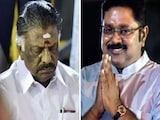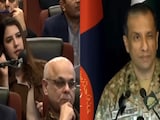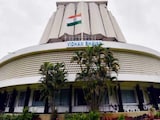- Indira Gandhi donated Rs 90,000 for Jayaprakash Narayan's dialysis treatment during Emergency
- Jayaprakash Narayan declined the donation, preferring small public contributions instead
- JP Narayan was arrested after Emergency was declared and diagnosed with kidney failure in custody
In a little-known episode from the Emergency era, former prime minister Indira Gandhi quietly donated a significant sum of Rs 90,000 for treatment of her fiercest critic, Jayaprakash Narayan, the leader of the nationwide anti-Emergency movement.
A new book reveals that the donation, which Mr Narayan declined, came at a time when his health had deteriorated and he required a life-saving portable dialysis machine.
Arrested on June 26, 1975, just hours after the Emergency was declared, Mr Narayan spent five months in custody in Chandigarh before being released on a 30-day parole in November that year.
According to "The Conscience Network: A Chronicle of Resistance to a Dictatorship" by Sugata Srinivasaraju, JP was diagnosed with kidney failure during his custody and required lifelong dialysis to survive.
"Very soon, the cost of his treatment, and the regular dialysis he needed, became a matter of worry. It was decided, in due course, that a portable dialyser machine would work out better than going to a hospital regularly. It was also decided that the government's help would not be accepted. Therefore, his admirers started raising money for a dialyser," reads the book.
As news of his condition spread, supporters across India and abroad mobilised resources. The plan, according to the book, was to collect Re 1 per person from the public to fund the expensive dialysis machine. However, the progress was slow.
"At that point, Indira Gandhi, who learnt about the effort, sent a cheque with a handsome amount on it as her contribution," it added.
However, the Indians For Democracy (IFD) -- a Indian community-led organisation formed in the United States just weeks before the Emergency -- was dismayed by the news of Indira Gandhi's donation. The group urged Radhakrishna of the Gandhi Peace Foundation, the organisation collecting the funds, to return the money.
"I made it known that it would greatly disappoint JP's admirers if the cheque were accepted... We simultaneously requested JP to return Indira Gandhi's cheque. It was returned purely on our intervention. It was a fact that money was not coming through in India because people were scared of the government," recalls Anand Kumar, a member of the IFD, adding that his organisation vowed to collect the deficit amount.
In response, the IFD launched a global appeal to raise Rs 5 lakh-about USD 65,000 at the time-for the purchase and maintenance of a portable dialysis machine for Mr Narayan, and successfully collected the amount.
A letter by JP, dated June 11, 1976, was produced in the book quoting "technical points" of his rejecting the donation made by Gandhi -- including that only small contributions were acceptable.
"...I had given my consent without knowing that the money would be from the Prime Minister's Relief Fund. I took it for granted that it would be from your personal account , though a little thought on my part should have shown that it was not possible for you to contribute personally such a large amount. Be that as it may, the position is that before the contribution from your Fund was received, more than three lakh rupees had already been collected from the public in response to the appeal.
"I do fervently hope that you will not misunderstand me and think me ungrateful and discourteous. There is no discourtesy meant at all and I am grateful for the concern shown by you for my health," reads the letter.
"The Conscience Network", to be officially released on Wednesday -- marking the 50th anniversary of the Emergency -- offers an "untold story of the Indian community in the US during this era, spotlighting their burgeoning influence and the personal connections that spurred international efforts to counteract the authoritarian regime".
Published by Penguin Random House India (PRHI) and priced at Rs 1,299 is available for purchase across online and offline stores.
On June 25, 1975, Indira Gandhi announced the imposition of the Emergency in a broadcast on All India Radio, shortly after the Supreme Court granted a conditional stay to an Allahabad High Court verdict declaring her election to the Lok Sabha null and void. It was lifted on March 21, 1977
(Except for the headline, this story has not been edited by NDTV staff and is published from a syndicated feed.)















